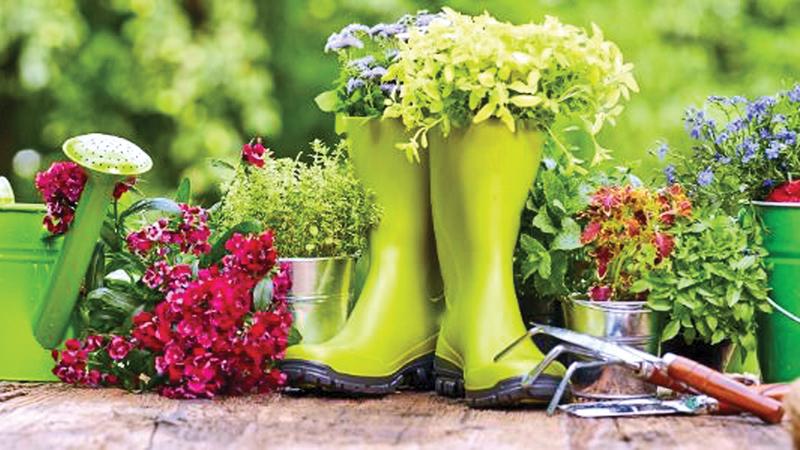
Start with a small commitment
It’s tempting to buy up every gorgeous plant you see at the garden centre, but it’s better to make your initial efforts a little less ambitious and more manageable (you will have to weed that garden, after all). For vegetable gardens, stick with a plot no bigger than 10 x 10 feet. Or opt for raised beds about 3 feet long, or go for several pots on your deck or balcony. You can always go bigger next year.
Good soil is what every garden needs
 How can you tell if your soil is decent? It should feel crumbly and be able to hold water when moist. That is, it’s not heavy clay or sandy, and a handful of moist soil can be squeezed into a ball. You can improve the soil by adding amendments such as compost (here’s how to make your own!) to improve soil structure, but you also need to know what nutrients are missing. A quick, inexpensive soil test from your local coop extension service will tell you what you need to add (find yours here).
How can you tell if your soil is decent? It should feel crumbly and be able to hold water when moist. That is, it’s not heavy clay or sandy, and a handful of moist soil can be squeezed into a ball. You can improve the soil by adding amendments such as compost (here’s how to make your own!) to improve soil structure, but you also need to know what nutrients are missing. A quick, inexpensive soil test from your local coop extension service will tell you what you need to add (find yours here).
Plant vegetables in containers
Vegetables are incredibly fun and rewarding to grow. But make sure you have the right conditions: They need full sun, which means six or more hours of direct sunlight every day. If you don’t have a sunny spot in your yard (or you don’t even have a yard!), plant vegetables in containers on your sunny deck or patio. Start with veggies that are easy-to-grow for beginners such as lettuce, spinach, bush beans, cherry tomatoes, and herbs such as parsley, thyme and basil.
Plant vegetables in containers
Vegetables are incredibly fun and rewarding to grow. But make sure you have the right conditions: They need full sun, which means six or more hours of direct sunlight every day. If you don’t have a sunny spot in your yard (or you don’t even have a yard!), plant vegetables in containers on your sunny deck or patio. Start with veggies that are easy-to-grow for beginners such as lettuce, spinach, bush beans, cherry tomatoes, and herbs such as parsley, thyme and basil.
Keep a notebook
Trust us, you’re totally not going to remember what you did last year. It doesn’t have to be complicated; just scribble down the names of varieties you planted (or tape the plant tags to a page in the notebook), where you got them (in case you want more of them next year), and jot a few general notes on how they did—especially what wasn’t worth the effort. You can’t get good at gardening unless you learn from your experiences. Also, note when you fertilised and when your garden saw its last frost in spring and its first frost in fall.
Put your garden to bed for fall
Don’t compost anything that was diseased. Clean garden tools with a solution of 1 part bleach and 10 parts water to kill any potential diseases on them that can be transferred to your garden next year. Spread some compost over the top of your vegetable garden to decompose over the winter. In cold climates, put away your hoses and clay pots so they won’t be damaged by freezing temperatures
– oprahdaily.com
